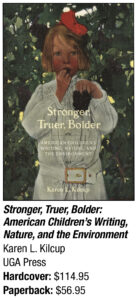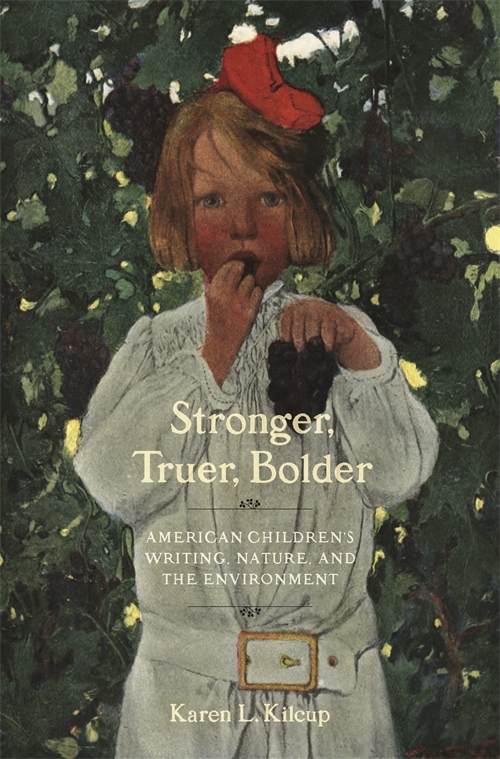
“Stranger, Truer, Bolder” covers an era that originally saw children more as a means for labor, and the book evaluates the fluctuating pedagogical yearning with regard to nature and the environment through timely changes, like the emergence of the U.S. as an industrial power. Author Karen L. Kilcup exemplifies how children’s literature echoed those transformations in various ways. In its earliest manifestations, it taught kids (and their parents) facts about the natural world and about proper behavior. But more importantly, as writing for children progressed, this genre increasingly promoted children’s environmental agency and saw their potential impact on concerns, be they animal rights or conservation and environmental justice. This type of understanding of and engagement with nature not only propelled children toward ethical adulthood but also formed a foundation for responsible American citizenship.
